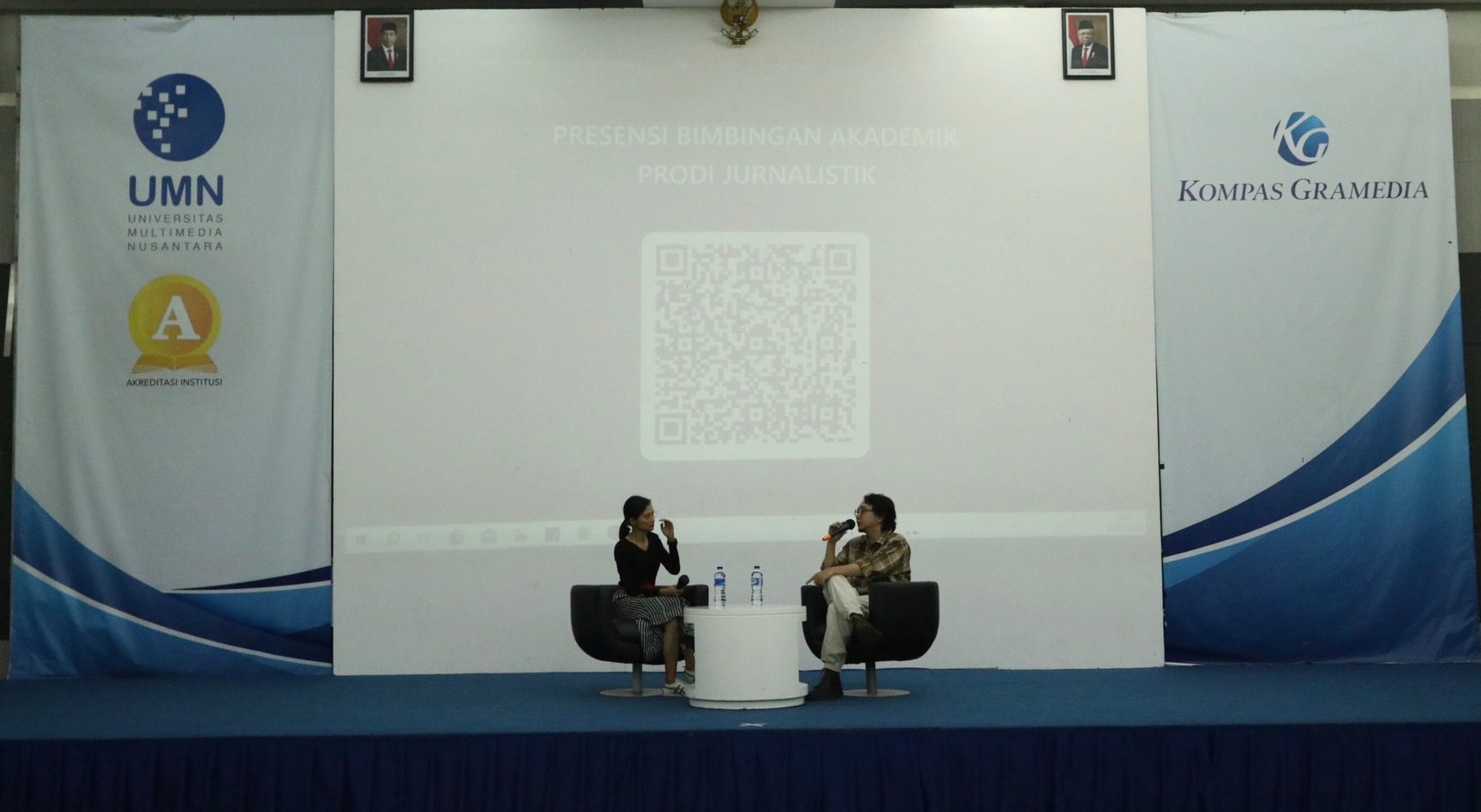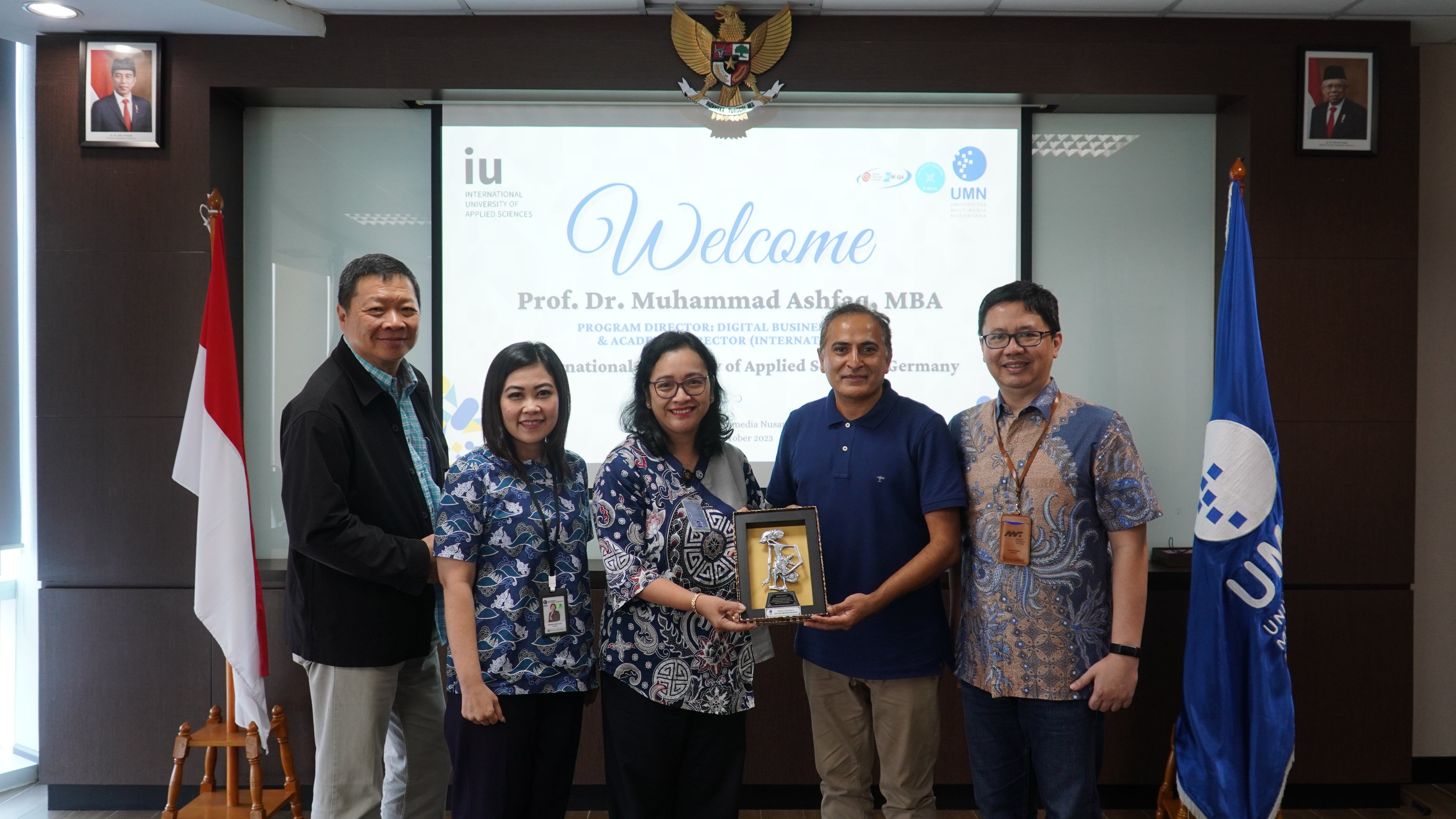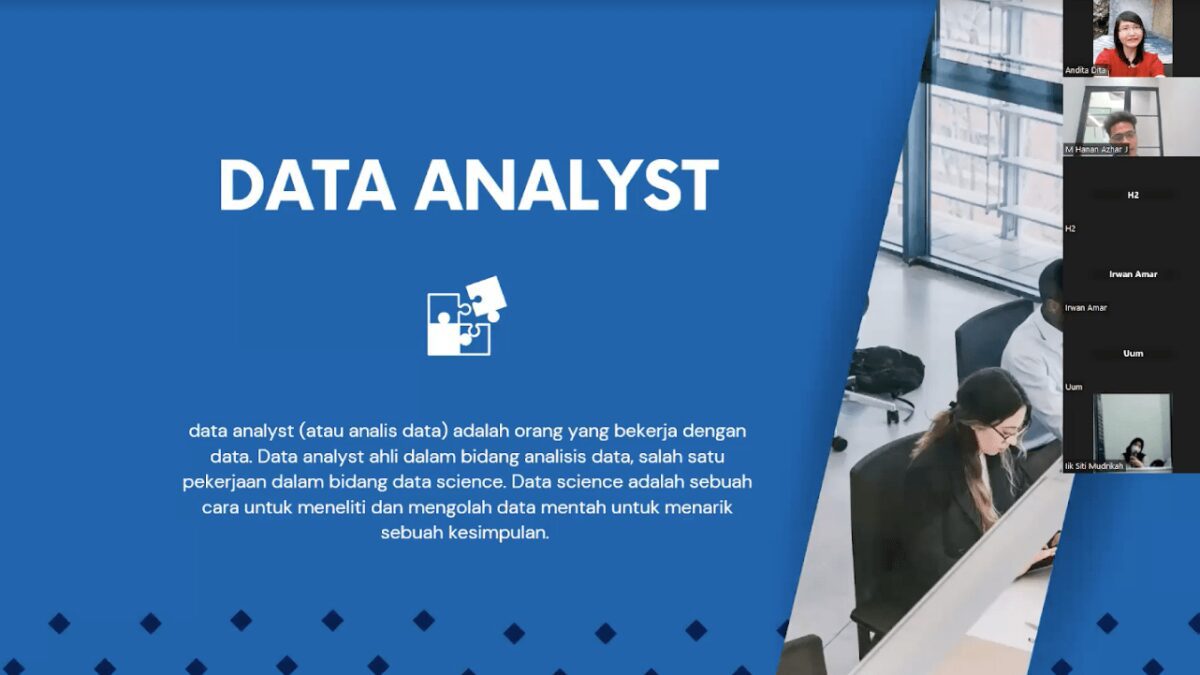
Sharing Session with Digital Journalism Alumnae
November 7, 2023
THE WELCOMING OF PROF. MUHAMMAD ASHFAQ, MBA
November 7, 2023
DQLab Data Science event (Doc. UMN).
Tangerang – The era of big data has created a new landscape in the world of information technology and data analysis. Professions in the data field have become one of the most sought-after and promising.
For data practitioners, this is an inevitable future because there will be an increasing amount of data used by companies or organizations and the need for data practitioners to help process data into usefulness.
Quoted from DQLab at the Data Science event: Fundamental Class that invited Hanan Azhar, the AR Management Support Analyst at Astra Credit Companies on October 11, 2023, brought material and explanations of “Career with data” for fellow participants who are preparing career strategies in the Big Data era optimally and it is crucial to follow.
Before going further, it is essential to understand the basics of the Data field. Hanan opened the material by briefly explaining the data profession that is currently most often needed and sought after by industry and briefly explaining Data Science, namely Data Analyst. In his explanation, a Data Analyst is someone who works with data and has expertise in data analysis, while Data Science is a way to research and process raw data to conclusions.
“A Data Analyst is closely related to its branch of Data Science. Data analysis itself has a cycle of 6 stages, namely finding data, preparing data, designing data models, building models, communicating data, and making decisions from data. Either in visual form or other forms of reports,” Hanan explained.
Furthermore, Hanan explained the role of Data Analyst, which is very important in companies. This is because the Data Analyst helps analyze the company’s internal data, and the data owned by the company is instrumental in making company decisions.
“Therefore, the Data Analyst also plays a role in communicating data between departments,” said Hanan. The role of Data Analyst also has an impact on prospects in the coming year. Hanan explained that this profession will continue to be needed because almost all activities are carried out online, and its role is to help automation from input to output.
With this increase, Data Analysts must be qualified to help process, analyze, model, and make decisions. Hanan again explained in detail what abilities a Data Analyst must have, including the ability of tools, one of which is SQL.
“In the industry itself, most of what is used is the SQL programming language, but if friends are learning other programming languages such as Python or R. Can be focused and completed first until proficient (one of the programming languages), after that, you can move to SQL,” Hanan said.
Another ability that Data Analysts must possess is describing the data obtained, whether presented in graphic visualizations, interactive dashboards, manual reports in Excel, and other visual forms or images. Good decision-making and communication are essential for Data Analysts. Hanan explained that decision-making is quite tricky because the amount of data owned can provide many conclusions, and the conclusions will impact the company or organization, so it is crucial for Data Analysts to understand the company’s objectives well.
“If the data is updated, users already understand what their workflow is like. And users can make decisions not only based on us (Data Analysts) but also based on how they see the data graph,” Hanan said.
The final discussion presented by Hanan was the Goals and Objectives of a Data Analyst. In this discussion, Hanan reminded the participants with objectives, which can be a reference for prospective Data Analyst talents and as a foundation for work. “This objective will depend on the data to be processed and the tools used. So, the objectives are not always the same,” explained Hanan in the discussion of Objectives.
As for the objectives, it is important that the Data Analyst has the main target of the data being processed and becomes the final target in initiating data processing. This is because data is not always obtained from users or other departments in the company. Still, as a Data Analyst, you must be able to initiate data projects to help create business strategies or future company needs. Navigating a career in the data era requires dedication and the right skills and abilities.
By focusing on skill development and always striving to learn and grow, you can build a successful career and fulfill your full potential as a Data Analyst. DQLab is a Data Science course platform that can help you upskill until you are ready for a career as a data professional in the industry. Register for Data Analyst classes through DQLab Free Class Data Science to prepare to become a data practitioner!
Agnes Nurlisa | UMN News Service
English translation by Levina Chrestella Theodora
Kuliah di Jakarta untuk jurusan program studi Informatika| Sistem Informasi | Teknik Komputer | Teknik Elektro | Teknik Fisika | Akuntansi | Manajemen| Komunikasi Strategis | Jurnalistik | Desain Komunikasi Visual | Film dan Animasi | Arsitektur | D3 Perhotelan , di Universitas Multimedia Nusantara. www.umn.ac.id





